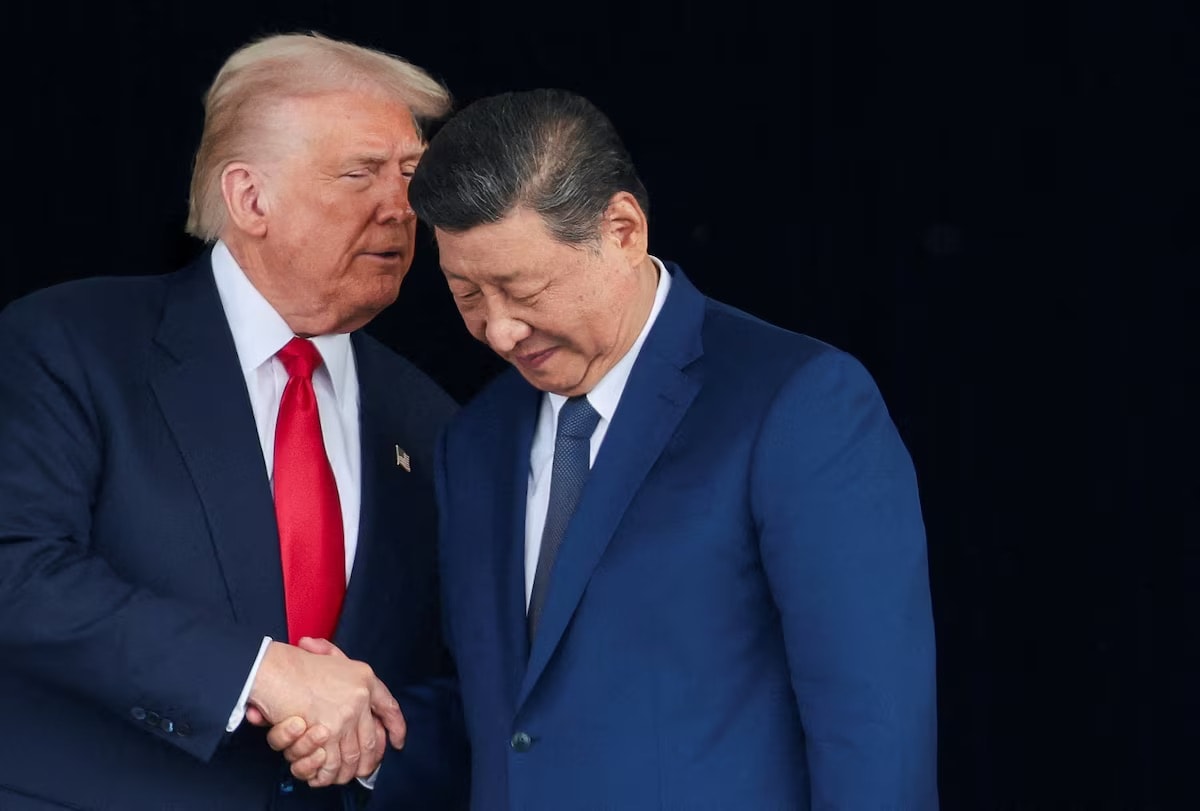The White House officially announced details of the agreements between Mr. Trump and Mr. Xi Jinping
The White House on November 1 (US time) announced details of the agreement that President Donald Trump and Chinese President Xi Jinping reached this week to "de-escalate" bilateral trade tensions. This agreement, reached on the sidelines of the APEC Summit in Busan (South Korea), helps extend the fragile "trade truce" between the world's two largest economies for about a year.

The agreement averts the threat of Trump imposing 100% tariffs on Chinese goods, as he had previously threatened. According to a White House statement, here are some key elements of the agreement:
US reduces tariffs on Fentanyl-related goods
The US will halve its current 20% tariff (to 10%) on Chinese goods related to precursor chemicals for Fentanyl, a synthetic opioid, which Washington first imposed in February.
The move would cut the average total US tariff on Chinese imports from about 57% to about 47%, according to US officials.
China suspends rare earth export controls
For its part, China agreed to a one-year suspension of export controls it announced in November on rare earth minerals and magnets, materials vital to the production of cars, aircraft and weapons, which Beijing sees as powerful leverage in its trade tensions with Washington.
These controls, if implemented, would require export licenses for products containing even small amounts of elements on the expanded list, aimed at preventing their use in military products.
China will also issue general licenses for the export of rare earths, gallium, germanium, antimony and graphite to US end users and their suppliers, the White House said.
Beijing lifts tariffs and retaliatory measures
China also agreed to suspend all retaliatory tariffs it had announced since March 4, including those on US chicken, wheat, corn, cotton, sorghum, soybeans, pork, beef, seafood, fruits, vegetables and dairy products.
In addition, the White House said Beijing will suspend or eliminate all non-tariff countermeasures it has taken against the United States since March 4, such as the inclusion of some US companies on its "unreliable entity list."
Washington pauses expansion of "blacklist"
In response, the US agreed to suspend for one year the expansion of the Commerce Department's "entity list" - a plan that targets companies banned from buying US technology, including semiconductor manufacturing equipment.
If implemented, the expanded blacklist would automatically include subsidiaries (more than 50% owned by companies already on the list), a move that could have the biggest impact on Chinese companies and bar thousands of Chinese businesses from accessing US technology.
China pledges to buy US soybeans
The White House said China agreed to buy at least 12 million tons of U.S. soybeans in the last two months of 2025 and at least 25 million tons each year for the next three years. Beijing also agreed to resume purchases of U.S. sorghum and hardwood lumber.
This fall, China largely stopped buying American soybeans, switching to supplies from Brazil and Argentina, a move that drew strong complaints from American farmers, a key Trump constituency.
But analysts note that these soybean commitments essentially return China to its previous levels of purchases. The US exported nearly 27 million tonnes of soybeans to China in 2024. Beijing pledged to significantly expand its soybean purchases in the 2020 “Phase One” trade deal, but never met its target due to the impact of the Covid-19 pandemic.
Other concessions on chips and shipping
The deal also includes other notable points. On semiconductors, China will end anti-monopoly and anti-dumping investigations targeting US companies in the semiconductor supply chain.
On port fees, the Trump administration agreed to a one-year moratorium on new port fees on Chinese-built, owned, or flagged ships. The fees, aimed at reviving the U.S. commercial shipbuilding industry, could add millions of dollars to the cost of each trip to U.S. ports.
For its part, Beijing agreed to lift retaliatory measures against Washington's Section 301 investigation into China's dominance in global maritime, logistics and shipbuilding.
Cooperation against Fentanyl
China agreed to take “significant measures” to stop the flow of fentanyl to the United States, including moves to block shipments of some precursor chemicals to North America and tighten controls on exports of other chemicals worldwide.
US Treasury Secretary Scott Bessent said working groups from the two countries would "set out very objective measures" in the coming weeks to measure success in curbing the flow of the deadly opioid.


